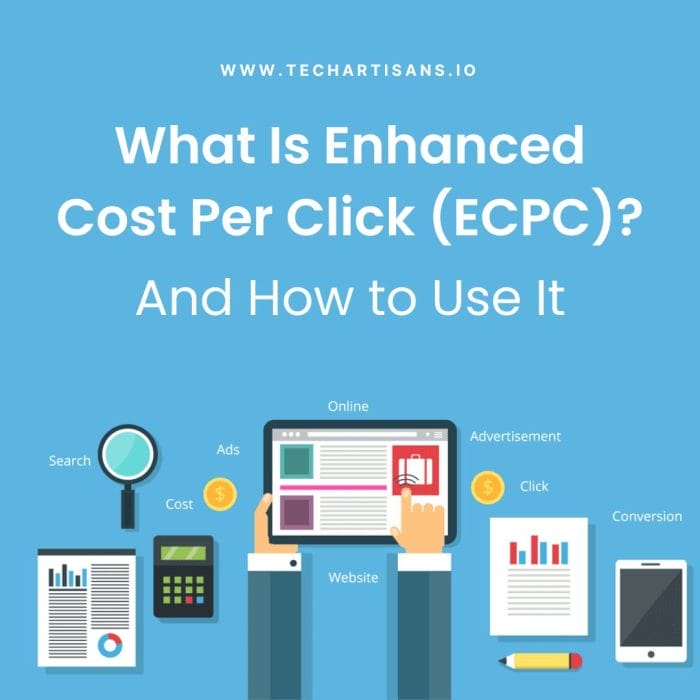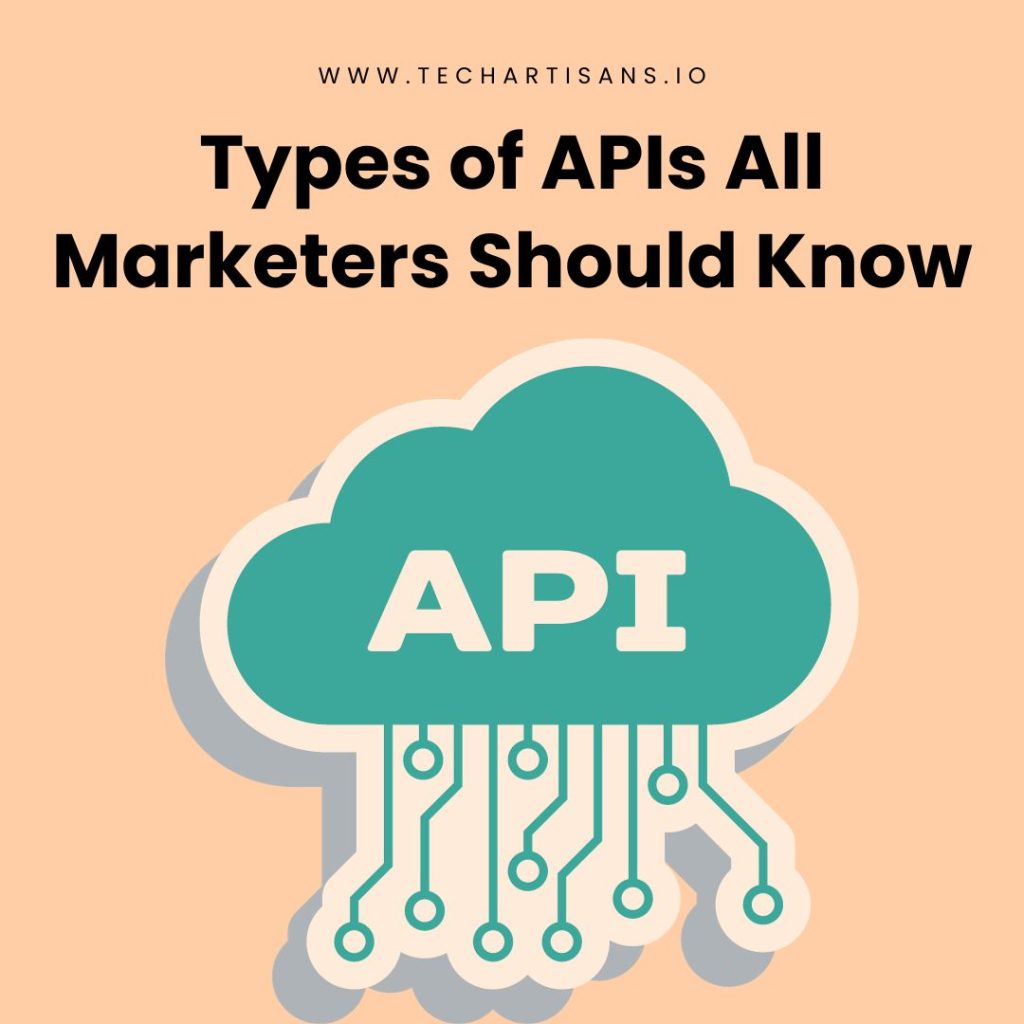In the fast-changing world of digital marketing, deciding how to spend your ad budget can be overwhelming. That’s where Enhanced Cost Per Click (ECPC) steps in. It’s a smart, automated bidding strategy that helps you get the most out of your ad money, ensuring your ads reach as many potential customers as possible.
If you are a business owner, grasping the reach of ECPC can be a game-changer that boosts your business to new levels. So, what is ECPC all about? And which type of automated bidding strategy is Enhanced Cost-Per-Click (ECPC)? Let’s delve in and find out.
What is Enhanced Cost Per Click (ECPC)?
Enhanced Cost Per Click (ECPC) is an automated bidding feature in Google Ads. It adjusts your manual bids for clicks likely to result in a conversion. By integrating machine learning, ECPC identifies patterns in your campaign performance and optimizes your bids automatically, helping you achieve a better return on ad spend.
Learn more about Explanation of SSL Certificate Errors and Solution
ECPC vs. Traditional CPC
ECPC, semi-automated, lets you set bids but uses machine learning for real-time bid adjustments, optimizing conversions, and offering control and automation for better ROI.
Traditional CPC allows manual bid setting, giving control but needing constant adjustments.
Read more about Top Benefits of Using Videos on the Website
Mechanics of ECPC
Let’s investigate how this powerful automated bidding strategy operates to maximize your ad performance.
1. How ECPC Works in Google Ads
When you opt for ECPC, Google Ads takes into account the historical data of your campaign and uses machine learning to predict which clicks are more likely to result in conversions.
Learn What is Enhanced Cost-Per-Click and Uses
It then adjusts your bids in real-time, increasing bids for promising clicks and reducing those that appear less likely to convert. This real-time bidding adjustment happens within a set range, ensuring you stay within your budget while maximizing your ad performance.
2. Algorithms in Adjusting Bids
Algorithms play a pivotal role in ECPC by analyzing your campaign’s historical data and identifying patterns. Utilizing machine learning, these algorithms predict which clicks are more likely to lead to conversions. They then adjust your bids in real-time, increasing for promising clicks and decreasing for those less likely to convert.
Find Out SEO Testing Guide and Tools
3. Conversion Tracking For ECPC
Conversion tracking is integral to ECPC as it feeds the algorithm with valuable data about which ads lead to conversions. This information helps the algorithm learn and make more informed decisions about bid adjustments. Without conversion tracking, the ECPC algorithm lacks the essential feedback it needs to optimize your ad spend, thereby reducing the effectiveness of your ECPC strategy.
Read Unveiling PPC Management: Do You Need It for Your Business?
How to Set Up ECPC in Google Ads
Let’s walk through the steps to enable ECPC and utilize its powerful automated bidding capabilities.
1. Step-by-step Guide to Enabling ECPC
- Begin by signing into your Google Ads account.
- Navigate to the desired drive to apply ECPC.
- Click ‘ Settings ‘ within the selected campaign, then select ‘Bidding.’
- Click ‘Change bid strategy’ and select ‘Manual CPC’ within the options.
- Check the box that says ‘Enhance CPC.’ This enables Google to adjust your manual bids to better target conversions.
- Click ‘Save’ to apply ECPC to your selected campaign.
Explorer more about Types of Web Design for Website
2. Tips for Optimizing ECPC Settings
- Make it a habit to check your campaign’s performance regularly. This helps you identify trends and make necessary adjustments.
- Although ECPC can exceed your set bids for potentially profitable clicks, defining a max CPC limit prevents overspending.
- ECPC performs best with a sufficient amount of conversion data. Aim for at least 15 monthly conversions for the system to learn and optimize.
- Implement conversion tracking to provide ECPC with accurate data, enhancing its performance.
- Feel free to experiment with settings and adjust as needed. What works for one campaign might not work for another, so be flexible and willing to adapt.
ECPC vs. Other Bidding Strategies
Let’s explore how Enhanced Cost Per Click (ECPC) compares to other popular bidding strategies.
1. Comparison With Manual CPC
Manual CPC lets you set and manage bids, offering hands-on management control. However, it’s time-consuming and needs more machine learning like ECPC, potentially limiting campaign success. While manual CPC provides control, ECPC offers better conversion potential.
2. Google Ads Bidding Strategies
Target CPA focuses on achieving specific cost-per-action goals using Google’s algorithms, ideal for maintaining a set CPA while increasing conversions. Maximize Conversions automatically optimizes bids for the most conversions within your budget, while Maximize Clicks aims to increase website traffic without specific CPA constraints.
Read Organic Search in Google Analytics
3. When to Use ECPC vs. Other Strategies
Use ECPC when targeting specific conversions while maintaining some control over your bids. It’s ideal for balancing automation with manual oversight. In contrast, opt for other strategies like Maximize Conversions or Target CPA when your focus is solely on conversions, without specific bid control, or if you’re aiming for maximum clicks irrespective of conversions.
Benefits of Using ECPC
Let’s explore the advantages and understand how ECPC can boost your online advertising campaign.
1. Ad Performance-Based Bid Adjustments
Enhanced Cost Per Click (ECPC) automates bid adjustments using machine learning to optimize your ad spending by analyzing ad performance in real-time, increasing bids for high-converting ads, and decreasing recommendations for less effective ones, maximizing your ROI.
Consider Web Files That Improve Your Website
2. Potential for Increased Conversions
Enhanced Cost Per Click (ECPC) has the potential to significantly increase conversions. By using machine learning to analyze campaign data, ECPC adjusts your bids for the clicks most likely to result in conversions. This strategic approach focuses your ad spend on high-performing clicks, maximizing conversion chances and ultimately boosting your return on investment.
3. Time-saving Aspect of Automated Bidding
Enhanced Cost Per Click (ECPC) acts as a time-saver by automating the bid adjustment process. This feature reduces the need for continuous monitoring and manual bid changes, freeing up valuable time that can be redirected toward other aspects of your business.
Tips for Maximizing the Benefits of ECPC
To maximize its benefits, let’s see which automated bidding strategy is enhanced cost-per-click (ecpc)? Here are some practical tips and techniques.
1. Best Practices for Setting Initial Bids
When setting initial bids with Enhanced Cost Per Click (ECPC), starting on the higher end is crucial, allowing Google’s algorithms ample room to adjust and optimize for conversions. Regularly review and adjust your bid based on performance metrics, and ensure you have a strong conversion tracking system to provide accurate ECPC optimization data.
2. Monitoring and Adjusting Campaigns
Constant monitoring and adjusting of your ECPC campaigns is essential for achieving the best results. Pay close attention to your key performance indicators (KPIs), such as click-through rate (CTR), average cost per click (CPC), and conversion rate. Use these metrics to identify areas of improvement and make necessary adjustments.
3. Audience and Ad Performance Metrics
Understanding your audience and ad performance metrics is crucial in ECPC campaigns. Audience insights can help tailor your ads to resonate with potential customers. At the same time, metrics like impressions, clicks, and conversions provide a clear picture of ad performance, offering invaluable data to guide bid adjustments and campaign strategy.
Drawbacks and Concerns
Let’s delve into these potential issues to better understand the full scope of ECPC.
1. Risks of Overspending
One of the potential drawbacks of using Enhanced Cost Per Click (ECPC) is the risk of overspending. Although ECPC employs machine learning to optimize your bids, it can occasionally exceed your set maximum cost-per-click bid to target more promising clicks, potentially leading to higher overall ad spend.
here’s a Guide on Web Performance Best Practices
2. Control to Algorithms
Another concern with ECPC is giving up control over algorithms. By employing this automated bidding strategy, you allow machine learning algorithms to dictate bid adjustments. While this can optimize ad spend, it does yield some control, which might only suit advertisers who prefer to manage some aspects of their bidding process.
3. Importance of Monitoring and Setting Limits
While ECPC is efficient, ongoing monitoring is essential to stay within budget and target profitable clicks. Additionally, setting spending limits is a safety measure to prevent overspending, providing control to keep your digital marketing campaign within your business’s financial limitations. These practices allow you to balance power and the advantages of the ECPC strategy.
Case Studies
Now, let’s explore some real-world examples and case studies to better understand which type of automated bidding strategy is Enhanced Cost-Per-Click (ecpc)?
1. Success Stories of Businesses Using ECPC
- E-commerce Store Boosts Sales: An online clothing retailer implemented ECPC and saw a remarkable 30% increase in sales within the first quarter. The strategy facilitated more focused targeting, maximizing the profitability of their ad spend.
- Local Restaurant Enhances Visibility: A local eatery employed ECPC alongside their Google Ads campaign. Within a month, they experienced a significant boost in visibility, with a 20% increase in website visits and a substantial uptick in table reservations.
- Tech Startup Improves Lead Generation: A tech startup used ECPC for its lead generation campaign. Their conversion rate witnessed an impressive 25% increase, resulting in more qualified leads for their sales team to pursue. This success story exemplifies how ECPC can effectively optimize bidding for maximum results.
Learn about Marketing Ideas for General Contractors
2. Lessons Learned From ECPC Campaigns
- Adapt and Evolve: ECPC campaigns need continuous monitoring and adjustment for optimal results. Market trends change rapidly, so it’s crucial to adapt your strategies.
- Importance of Data: ECPC’s effectiveness heavily depends on the availability of conversion data. With enough data, the system may function at its best.
- Max CPC Limit: Establishing a maximum CPC limit is critical in controlling overspending while using ECPC. It provides a balance between automated bidding and budget control.
- Role of Conversion Tracking: Implementing conversion tracking provides ECPC with accurate data, enhancing its performance and optimizing bids.
- Experimentation is Key: Every business is unique, so what works for one may not work for others. It’s essential to experiment with settings and adjust to find the most effective strategy for your campaigns.
Conclusion
Enhanced Cost Per Click (ECPC) has become a significant player in today’s digital marketing landscape. It balances automation and manual control, streamlining bidding processes for businesses. This flexibility and effectiveness help companies achieve their advertising goals.
The question “Which type of automated bidding strategy is enhanced cost-per-click (ecpc)?” reflects the need to understand the benefits and functions of ECPC. Knowing this can help businesses create a smart bidding strategy for getting more conversions from their digital ads.

































